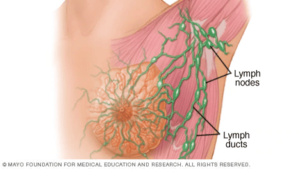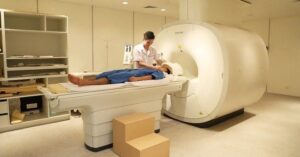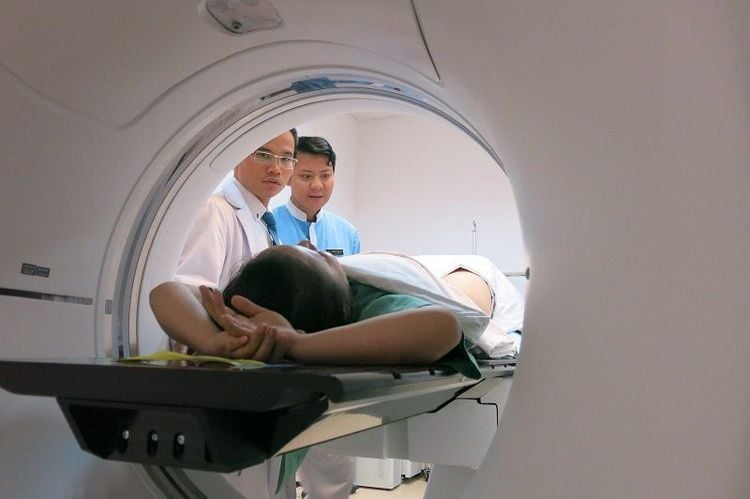In some women, breast cancer can recur after treatment many years later. Recurrent breast cancer can be local, regional, or metastatic. Therefore, treatment will depend on many factors. The doctor will rely on test results along with the actual condition of the disease to help the patient find an appropriate treatment protocol.
1. Recurrent Breast Cancer
All women with breast cancer wonder whether the cancer will recur. For some women, it does not, but for others, it may still happen. Breast cancer can recur at any time, but most recurrences occur within the first 5 years after treatment.
Breast cancer can recur locally or at any site in the body. Some of the most common sites, besides the breast, where breast cancer may recur include lymph nodes, bones, liver, lungs, and brain.

2. Diagnosis of Recurrent Breast Cancer
If a doctor suspects that a patient may have recurrent breast cancer, they may rely on mammogram results, physical examination, or certain signs and symptoms to recommend additional tests that aid in more accurate diagnosis of the disease.
These tests may include:
- Imaging tests: The imaging tests that patients need to undergo will depend on the specific condition of the disease. These tests include: magnetic resonance imaging (MRI), computed tomography (CT), X-rays, bone scans, or positron emission tomography (PET). Not all patients need to undergo these tests. The specialist will determine which test is most useful for the actual condition.
- Removing a tissue sample for biopsy testing: The doctor will recommend performing a biopsy procedure to collect suspicious cells. Subsequently, methods will be used to test these suspicious cells to determine whether the cancer has recurred. This entire process will be carried out in a laboratory by a pathologist. The pathologist will examine the cells and identify related cell types.
The pathologist can also determine whether the cancer is a recurrence or a new type of cancer. The tests will also indicate whether the cancer is sensitive to hormone treatment or targeted therapy, as these factors may have changed since the patient’s initial cancer diagnosis.

3. Treatment of recurrent breast cancer
Treatment options for recurrent breast cancer will depend on several factors, including the extent of the disease, hormone receptor status, and the type of treatment applied during the initial diagnosis of breast cancer. The doctor will consider the test results as well as the specific condition of each individual patient to determine the treatment goals.
3.1. Treatment of Locally Recurrent Cancer
Treatment for locally recurrent cancer, also known as local recurrence. The treatment regimen for localized breast cancer usually begins with surgery and may include radiation therapy if the patient has not been previously treated. Chemotherapy and hormone therapy may also be recommended in this case.
Surgery: For breast cancer that has recurred and is limited to the breast, surgical treatment will typically remove any remaining breast tissue that contains cancer. If the patient underwent a lumpectomy during the initial treatment, the doctor may recommend a mastectomy to remove all breast tissue such as lobules, ducts, fatty tissue, skin, and the nipple. If the breast cancer in the initial treatment was treated with a mastectomy and the cancer recurs in the chest wall, the doctor may suggest surgery to remove the new cancer along with a margin of normal tissue.
A localized recurrence may be accompanied by hidden cancer in nearby lymph nodes. For this reason, the surgeon may remove some or all of the nearby lymph nodes if they were not removed during the initial treatment.
Radiation therapy: Radiation therapy will use high-energy beams, such as X-rays, to kill cancer cells. If the patient did not undergo radiation therapy during the first treatment, the doctor may recommend it for this time. However, if the patient has already received radiation therapy after tumor removal surgery, radiation therapy for recurrent breast cancer is often not recommended because it may pose a risk of side effects.
Chemotherapy: Chemotherapy will be used to kill cancer cells. The doctor may suggest chemotherapy after surgery to reduce the risk of cancer recurrence.
Hormone therapy: This method will use medications to block the growth-promoting effects of the hormones estrogen and progesterone. This approach may be recommended if the breast cancer is hormone receptor positive.
Targeted therapy: If tests show that cancer cells produce excess HER2 protein, targeted therapy drugs will be recommended for these cases.
3.2. Treatment of Locally Recurrent Breast Cancer
The treatment regimen for locally recurrent breast cancer includes:
- Surgery: If surgery is possible to remove the cancer, it is the recommended treatment for locally recurrent breast cancer. The surgeon may also remove the lymph nodes under the patient’s arm if they are still present.
- Radiation therapy: Sometimes radiation therapy may be used after surgery. If surgery is not possible, radiation therapy may be used as the primary treatment for locally recurrent breast cancer.
- Medication treatment: Treatments such as chemotherapy, targeted therapy, or hormone therapy may also be recommended as primary treatments or may be used after surgery or radiation therapy.
3.3. Treatment of Metastatic Breast Cancer
Many treatment options exist for metastatic breast cancer. The choice of which method to use will depend on where the cancer has spread. If treatment is ineffective or stops working, other treatment methods may be tried.
The goal of treatment for metastatic breast cancer is not to cure the disease. Treatment may allow patients to live longer and may help alleviate the symptoms caused by the cancer. The doctor will base treatment methods on the actual condition of the disease to achieve a balance between controlling symptoms and minimizing the toxic effects of treatment. The ultimate aim is to help the patient live as well as possible for as long as possible.
The treatment regimen for metastatic recurrent breast cancer includes:
- Hormonal therapy: If the metastatic breast cancer is hormone receptor-positive, hormonal therapy will be recommended. This therapy has fewer side effects than chemotherapy, so in many cases, this will be the first treatment method used for metastatic recurrent breast cancer.
- Chemotherapy: Doctors may recommend chemotherapy if the recurrent breast cancer is hormone receptor-negative or if hormonal therapy does not respond in this case.
- Targeted therapy: If the cancer cells have certain characteristics that make them vulnerable, doctors will recommend targeted therapy using medication.
- Bone-building drugs: If the cancer has metastasized to the bones, doctors may recommend bone-building medications to reduce the risk of fractures or alleviate bone pain that the patient may experience.
- Other treatment methods: Radiation therapy and surgery may be used in certain situations to manage the signs and symptoms of advanced breast cancer.
The treatment of recurrent breast cancer will depend on examinations and diagnostic findings, from which doctors will provide the most appropriate treatment plan for the patient’s health.
Breast cancer is a disease that causes a high mortality rate among women; however, it can be treated if detected and treated promptly, minimizing the risk of recurrence. In addition, each woman must also protect her own health by self-examining and noticing any changes in the breasts and surrounding areas. Especially for those women who have undergone surgery for breast cancer, regular check-ups are necessary to timely detect any recurrence of breast cancer.
Reference source: mayoclinic.org

